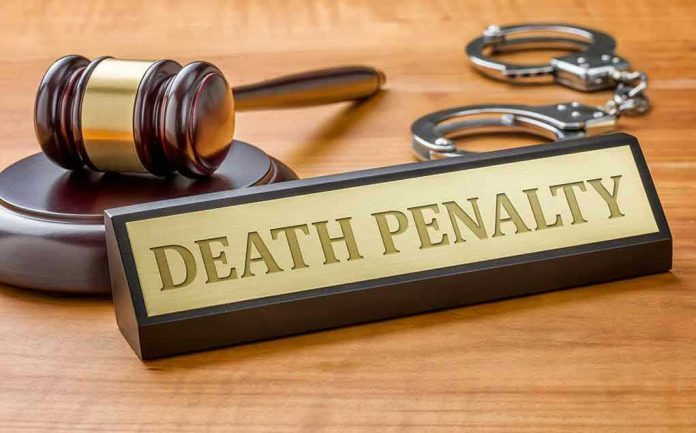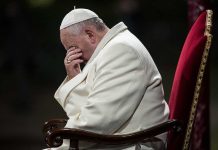
As prosecutors in Bangladesh demand the death penalty for ex-Prime Minister Sheikh Hasina over a staggering 1,400 protest deaths, the world watches a justice system stretched to its limits—raising urgent questions about accountability, political power, and the dangers of unchecked government authority.
Story Snapshot
- Bangladeshi prosecutors seek the death penalty for former Prime Minister Sheikh Hasina, tried in absentia for allegedly ordering a deadly crackdown in 2024.
- Hasina remains in exile in India, refusing to recognize the court or return for trial as the country faces rising political instability ahead of the 2026 elections.
- The scale of the violence—up to 1,400 killed—marks this as an unprecedented case in Bangladesh’s modern history, with allegations supported by audio evidence.
- Human rights groups and legal experts worldwide question the legitimacy of the proceedings and warn of deepening authoritarianism and politicized justice.
Prosecution Demands Death Penalty in an Unprecedented Trial
On October 16, 2025, Bangladeshi prosecutors formally demanded the death penalty for Sheikh Hasina, the country’s former prime minister, holding her responsible for a brutal crackdown on student protests in July and August 2024. The prosecution alleges Hasina directly ordered the use of lethal force, with audio evidence presented in court. The crackdown reportedly resulted in up to 1,400 deaths, making this one of the deadliest episodes in Bangladesh’s recent history. Hasina, now in exile in India, is being tried in absentia as the interim government seeks to restore stability before the critical national elections scheduled for February 2026.
Hasina’s trial, underway since June 2025, has drawn global attention for its scale and severity. She was convicted for contempt of court in July 2025 after refusing to return from India, defying court orders and claiming political persecution. Alongside Hasina, two former officials face similar charges: former interior minister Asaduzzaman Khan Kamal, also in hiding, and former police chief Chowdhury Abdullah Al-Mamun, who has pleaded guilty. The ongoing trial highlights the interim government’s determination to set an example of accountability at the highest levels, even as Hasina’s party, the Awami League, is banned and her relatives face corruption charges.
Political Chaos and Questions of Due Process
The prosecution’s demand for the death penalty comes as Bangladesh faces deep political turmoil. The interim government claims the trial demonstrates its commitment to justice and restoring order, but Hasina’s allies and many international observers argue the proceedings are politically motivated. Human rights groups have voiced concern about due process, the use of the death penalty, and the reliability of evidence presented in absentia. Legal experts note that Bangladesh has prosecuted former leaders before, but never for contemporary events on this scale, and rarely with such severe penalties. The trial’s legitimacy remains contested, as Hasina and her state-appointed lawyer refuse to recognize the court’s authority.
The case’s unprecedented nature is underscored by the prosecution’s rhetoric: “For a single murder, one death penalty is the rule. For 1,400 murders, she should be sentenced 1,400 times—but since that is not humanly possible, we demand at least one.” This statement reflects the immense public anger over the crackdown, but also the potential for the case to set a dangerous precedent for politicized justice. As the verdict approaches, the country remains polarized, with families of victims demanding justice while opposition groups and civil society worry about the broader implications for political dissent and the rule of law.
Broader Implications for Democracy and Stability
Short-term, the trial has heightened tensions ahead of the national elections, with the risk of further unrest and deepening polarization. Long-term, it could set a precedent for prosecuting former heads of government, but also risks chilling political dissent if seen as a political purge. Bangladesh’s international reputation hangs in the balance, as human rights organizations and foreign governments scrutinize the fairness of the proceedings. Economic growth and investment are also at risk due to ongoing instability and uncertainty. The trial has already impacted civil society, with media and legal sectors facing increased pressure to conform to government narratives.
Bangladesh prosecution seeks death penalty for ex-PM Sheikh Hasina over protest killings https://t.co/sE6IYTlmdM #OODA
— OODA (@ooda) October 16, 2025
Expert analysis remains divided. Supporters of the prosecution argue that holding leaders accountable for mass killings is essential for justice and national healing. Critics, including prominent legal scholars and international observers, warn that the trial’s conduct—especially the use of evidence in absentia and the political context—threatens democratic norms and may embolden future governments to wield the judiciary as a tool against opponents. For Americans wary of government overreach and the erosion of constitutional protections, the Bangladesh situation serves as a stark reminder of what can happen when political power goes unchecked and due process is cast aside for expediency.

















